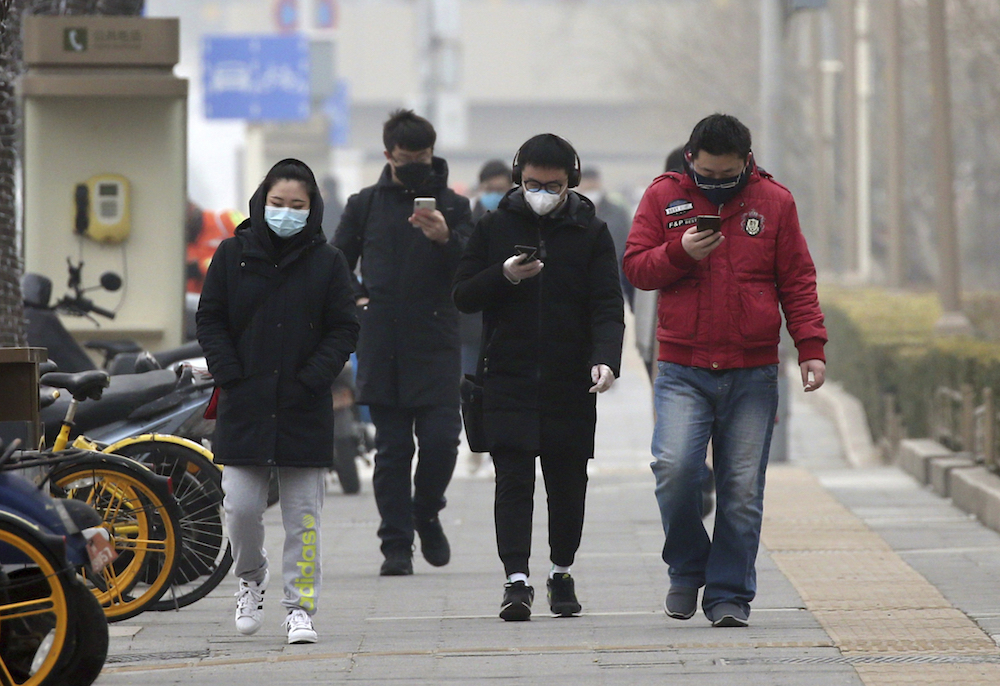Policing
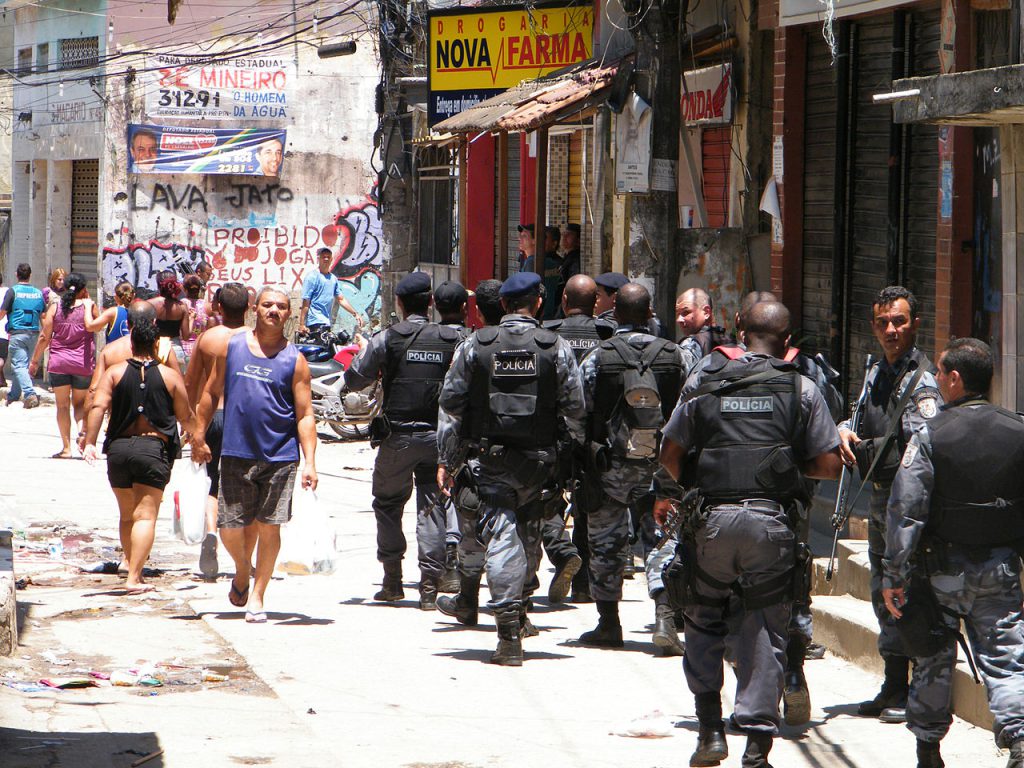
Governments task police forces and other security units with the responsibility of maintaining order and control over civilian populations. In this unit, students will learn about policing in different countries around the world and observe the differences and similarities in law enforcements’ approaches and methods. They will also gain an understanding of how policing affects different communities and become familiar with how power, violence, and control are embodied and meted out by the institution and by individual officers. Students will study critiques of policing put forth by various scholars.
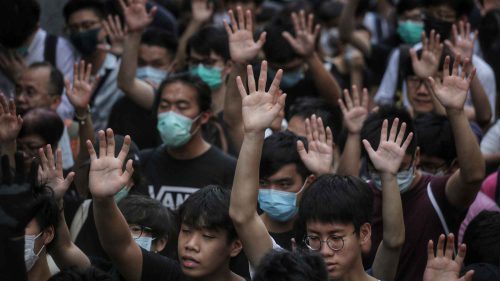
When Harmony Silences Resistance
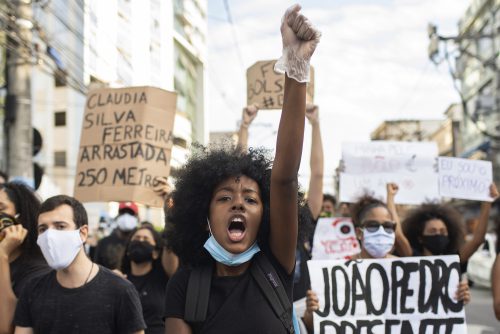
Combating Anti-Black Racism in Brazil and Beyond

Por que as andorinhas voam para a zona desmilitarizada coreana?
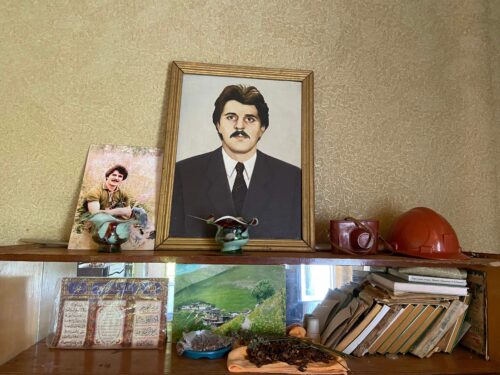
Para as famílias de entes queridos desaparecidos, as investigações forenses nem sempre trazem uma conclusão
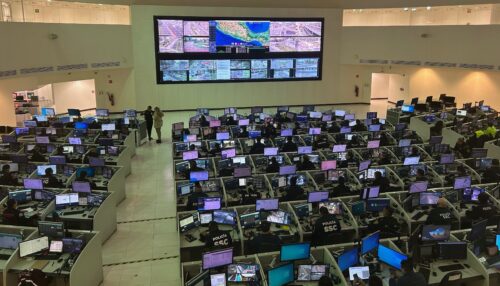
Por dentro do estado de vigilância da Cidade do México
![Uma pessoa usando um vestido branco cuja saia é feita de fitas, cada uma com um nome escrito, inclina-se para trás com os olhos fechados. Ela está na grama, com uma faixa do Black Lives Matter [Vidas Negras Importam] no chão ao seu lado e um círculo de bateristas e espectadores ao redor.](https://www.sapiens.org/app/uploads/2023/07/01_Say-Her-Name-rally-500x337.jpg)
A urgência de vislumbrar um mundo sem polícia

Como uma megabarragem perturba o fluxo da água —e do dinheiro
![Uma pessoa usando um vestido branco cuja saia é feita de fitas, cada uma com um nome escrito, inclina-se para trás com os olhos fechados. Ela está na grama, com uma faixa do Black Lives Matter [Vidas Negras Importam] no chão ao seu lado e um círculo de bateristas e espectadores ao redor.](https://www.sapiens.org/app/uploads/2023/07/01_Say-Her-Name-rally-500x337.jpg)
A urgência de vislumbrar um mundo sem polícia
- Police forces exist in countries around the world and hold differing levels of power depending upon the type of government that presides over them.
- As an institution, the police are expected to protect, serve, and maintain order among civilian populations. Because of their mandate, any violence they use to achieve order is generally viewed as legitimate and supported by the state.
- Anthropologists study police and policing through a cultural lens, and focus on a number of salient topics: for example, power dynamics within police forces and between the police and the people they protect; the police as an arm of the state; population control; the historical roots of policing that are often linked to European colonialism and plantation slavery; and the role of class, race, sexuality, mental health, and gender as they affect police officers, and influence which communities are likely to be targets of policing.
- Anthropologists have also played important roles in ongoing conversations around police violence and solutions to it. Their research reveals that other approaches can be used to ensure safety and that the style of policing as currently conducted in many countries has not always existed. These scholars support different strategies and tactics to achieve security and safe societies: for example, community policing, building trust between civilians and the police, legal change, police reform, and abolition of police forces.
-
Beliso-De Jesús, Aisha. 2020. “The Jungle Academy: Molding White Supremacy in American Police Recruits.” American Anthropologist 122 (1): 143–156.
-
Martin, Jeffrey T. 2018. “Police and Policing.” Annual Review of Anthropology 47 (1): 133–148.
- What social factors contribute to differing opinions about the police?
- What similarities and differences do you see, if any, across accounts of policing in different parts of the world?
- Does the concept of coerced harmony discussed in Lau’s SAPIENS article apply to other readings? If so, how?
- What does Smith say in the interview with SAPIENS about the results people can expect from diversifying the police force and how we might think of individual officers as opposed to the police as an institution? How does Smith’s perspective on these two issues differ from Gusterson’s argument in his SAPIENS column post?
- Why is it important to learn about the culture of police academies and training? Can this information give clues to how to improve policing?
- What alternatives to current forms of policing are mentioned in these articles? Which of them resonate with you and why?
- Have students write an op-ed about policing that responds to key arguments of the unit readings.
-
Article: Favian Alejandro Martín and Mona J. E. Danner’s “Elusive Justice: Tribal Police Officers’ Perception of Justice in an American Indian Community”
-
Book: Laurence Ralph’s The Torture Letters: Reckoning With Police Violence
-
Book: Savannah Shange’s Progressive Dystopia: Abolition, Anti-Blackness, and Schooling in San Francisco
-
Podcast: SAPIENS’ “Police Violence and the Pandemic”
-
Podcast: The Conversation’s Pasha “Talking #EndSARS and the New Proposed Unit”
-
Podcast: CANADALAND’s “Everybody Else is Abolishing the Police, So Why Can’t We?”
-
Website: Movement for Black Lives’ Defund the Police page
Eshe Lewis (2020)
Pandemics
